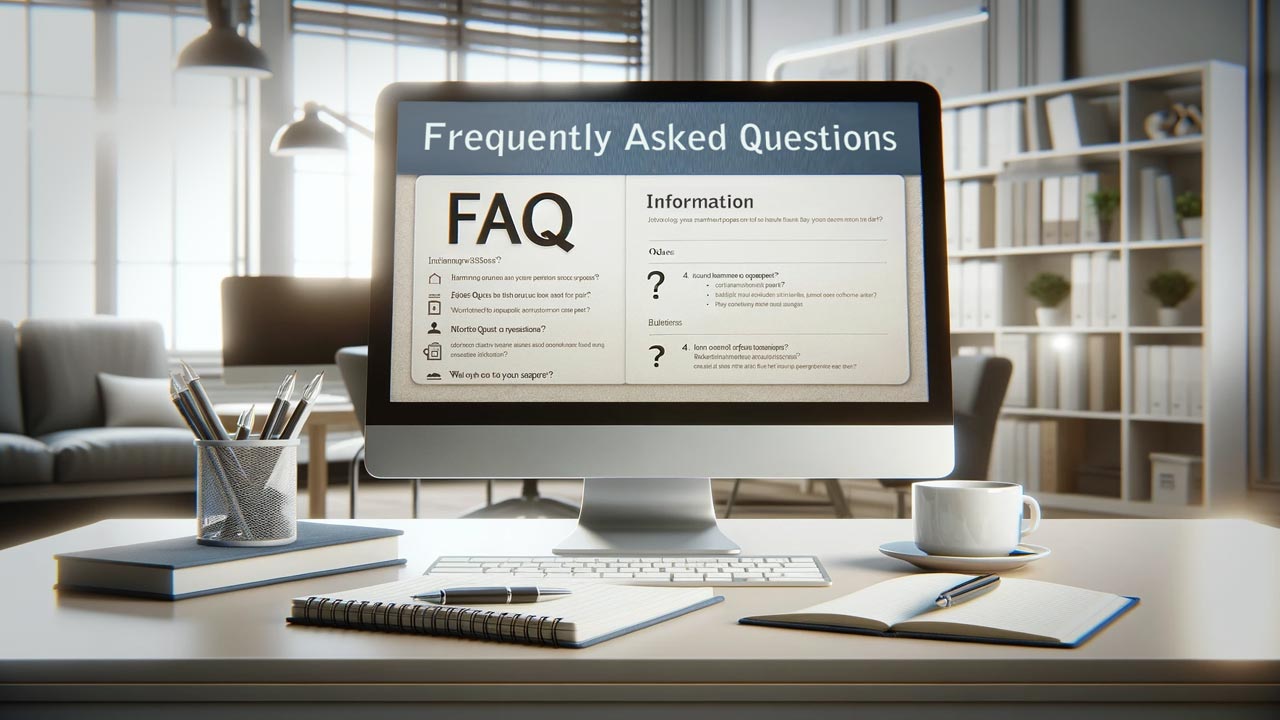Optimal FAQ Guide, Using FAQ’s in your Blog
Today our Optimal FAQ Guide covers the optimal number of FAQ (Frequently Asked Questions) to include in an SEO-optimized blog post. The amount can vary based on the content and purpose of the post. However, here are some best practices to consider:
- Relevance and Quality Over Quantity: Focus on the relevance and quality of the questions rather than the number. Include FAQs that are directly related to the main content of the blog post and that your target audience is likely to find useful.
- Keyword Research: Use keyword research tools to identify common questions asked by your target audience. This can help in choosing FAQs that are not only relevant but also likely to drive traffic through search engines.
- User Intent: Consider the intent behind the questions. Are they informational, navigational, transactional, or related to troubleshooting? Matching the user intent can improve the user experience and SEO performance.
- Readability and Structure: Ensure that the FAQs do not overwhelm the reader. A clear, concise, and well-structured FAQ section is more user-friendly. Using collapsible sections or tabs for FAQs can help in maintaining a clean layout.
- Content Length: The overall length of your blog post matters. A longer post can naturally accommodate more FAQs without affecting user experience or readability. However, in shorter posts, a lengthy FAQ section might detract from the main content.
- Updating Frequently: Update your FAQs regularly based on new trends, questions, and changes in your field. This keeps your content fresh and relevant.
- Balancing with Content: Ensure that the FAQs complement the main content and do not repeat information already covered in the blog post.
In general, there is no fixed “best” number of FAQs for every blog post. It depends on the topic, the depth of the content, and the needs of your audience. A good practice is to start with 5-10 FAQs and adjust based on feedback and performance metrics. Remember, the goal is to add value to your readers and improve the accessibility of information, not just to optimize for search engines.
Check out our 1st article for more general details on What is a Blog?
Why are (FAQs) important to the public?
- Easy Access to Information: FAQs provide quick and easy access to important information. People often have common questions about a product, service, or topic. Having these questions answered in one place saves time and effort in searching for answers.
- Enhanced Understanding: FAQs can enhance understanding by clarifying doubts or misconceptions. They can provide detailed explanations in a simple and comprehensible format, which is especially helpful for complex topics or products.
- Improved User Experience: By anticipating and answering common questions, FAQs improve the overall user experience. They can prevent frustration that might arise from not being able to find information easily.
- Efficiency: For businesses and organizations, FAQs can reduce the workload on customer support by addressing common queries. This allows staff to focus on more complex issues that might require personal attention.
- Trust and Credibility: Providing clear and helpful answers to FAQs can build trust and establish credibility. It demonstrates that an organization understands and cares about the needs and concerns of its audience.
- Guidance and Decision Making: FAQs can guide individuals in making informed decisions, especially when it comes to purchases, services, or understanding policies and procedures.
- SEO Benefits: For websites, FAQs can contribute to Search Engine Optimization (SEO). They can include relevant keywords and provide valuable content that answers the queries people are searching for, which can improve search engine rankings.
- Feedback Mechanism: The nature of the questions in an FAQ section can provide insights into what customers or the public are most concerned about or interested in. This can be valuable feedback for organizations to improve their offerings or communication.
- Accessibility: FAQs can make information more accessible to a wider audience, including those who might have language barriers or different levels of understanding about a subject.
- Community Building: In some contexts, FAQs can help foster a sense of community by showing that others have similar questions or concerns, creating a shared understanding or common ground among users or customers.
In summary, FAQs are a critical tool for effective communication and information dissemination, benefiting both the public and organizations by providing clarity, convenience, and connection.









Leave A Comment